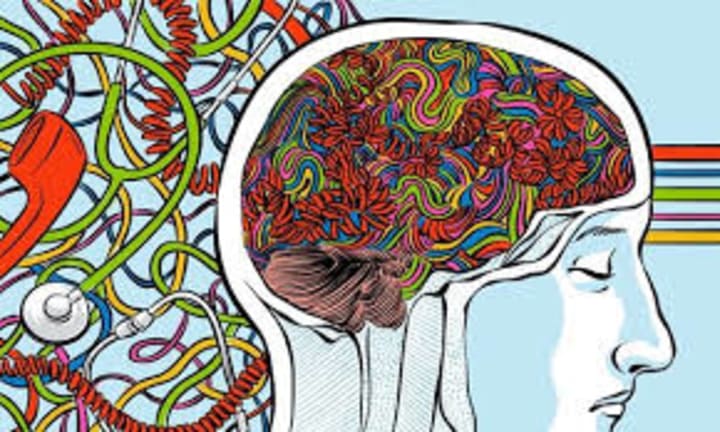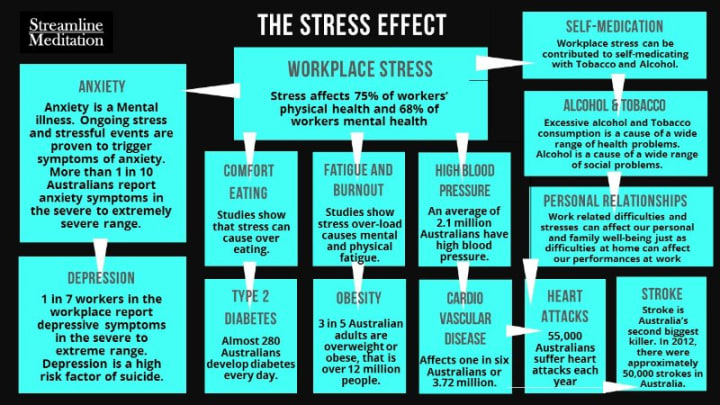The Effects of Long-term Stress on Adolescents
Take a look into the scientific and physical causes for stressors and their effects in adolescents' lives.

Let's start off by stating what is stress. Stress is a physical, chemical, or emotional factor that causes bodily or mental tension. Stress is your body's way of responding to any kind of demand. It can be caused by both good and bad experiences. When people feel stressed by something going on around them, their bodies react by releasing chemicals into the blood.
Now that we have that down, let's move onto what causes stress. There are several factors of stress for adolescents. There are four main categories: physiological, cognitive, behavioral, and environmental. All these factors can affect your mind and body either positively or negatively. These are the basics you need to know about stress and how it is triggered. For adolescents there are many triggers surrounding them every day, which are technically called "stressors." Here is a list of a few of the many stressors that can be potentially affecting any adolescent at any time: Hormones are changing, stresses of relationships (family and friends), academic responsibility, roles and responsibilities, financial (money for needs and wants), and many more. With these stressors being "activated" so to speak, they have an effect on how the adolescent acts.



The Stress Effect

Photo By: Streamline Meditation
Here is a chart based on the stress effect. This can be a summary for the above paragraphs along with more insight on the topic.
Chronic Stress
Long term stress, also known as chronic stress, can lead to the risk of obtaining:
- Depressive, mood, anxiety disorders
- Substance abuse
- Bodily diseases
- Weaker immune system
- Adrenal burnout
- Fatigue (less or more sleep)
Now you might be wondering how someone can have chronic stress. According to the American Psychological Association:
Chronic stress can occur in response to everyday stressors that are ignored or poorly managed, as well as to exposure to traumatic events. The consequences of chronic stress are serious, particularly as it contributes to anxiety and depression ... Additionally, research has shown that there is an association between both acute and chronic stress and a person's abuse of addictive substances.
Managing/Coping with Stress
Managing and utilizing coping mechanisms are an essential step to take to help reduce stress on a daily basis. The following are a few ways to help manage stress on any level:
- Exercise: 30-60 minutes of activity a few days a week
- Proper diet: Greens, meats, carbohydrates, hydration
- Relaxation: An hour a few days a week of relaxation
- Realistic Goals: Knowing one’s abilities
- Empathy: loved ones must be supportive and boost self-esteem
- Proper Sleep: about 8-10 hours
Never let stress get the best of you! Hopefully some of these managing/coping strategies can help with your stress, or recommend one of the above ways to a friend or loved one dealing with stress. The best way to manage stress if it reaches an intolerable level is to seek help! Doctors and psychiatrists are equipped to help you deal with your everyday struggles.
If your interest is peaked on the stress topic, here's a short 2:32 minute video of the effects of stress on the brain and body. This video goes into detail stress and how it is not something to frown upon. Take a look into this animated sketch production by Braive on Youtube!
About the Creator
Rae Hizzle
Just putting out what my brain feels like creating.






Comments
There are no comments for this story
Be the first to respond and start the conversation.